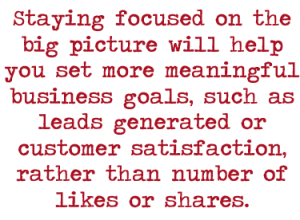This is a guest post from Sarah Price, Community and Social Media Programs Lead for Google Glass and member of TheCR Network.
Managing a community team or hoping to someday? Your community managers, forum reps and social support agents will be the face and voice of your brand. Here are a few tips for building a strong team you can trust.
1. Think Big Picture
Despite the title of this post, don’t think of your team as “the forum team” or the “social media team.” Forums and social media are just technologies. Instead, think about how you fit into your department, and your department’s and company’s goals. Is your team part of marketing? Then you might be a retention marketing team: focused on keeping the customers you already have. Perhaps you are part of support operations? You might be a scalable support team, since community is usually more scalable than 1-to-1 phone or email.
Of course your team is likely a blend of marketing, support, PR, HR, legal, and more, but the point is not to limit yourself to the tools and platforms you use. Social media might be new to your business, but the underlying concepts, like building brand trust, aren’t. Staying focused on the big picture will help you set more meaningful business goals, such as leads generated or customer satisfaction, rather than number of likes or shares. It will also help you frame your roles, prioritize desired skills, and make hiring decisions.
2. Create Skill Synergies
Your team requires an incredible range of skills to be successful. They need to be dedicated and empathetic: if they drop the ball with the wrong customer, a PR nightmare could ensue. They need to have detailed knowledge about your industry and be oriented towards customer service, so they can solve issues. They need to be strong project managers to handle the myriad of details that go into administrating your community and social media properties. They will be writing content, so they need to have creativity and an endless pipeline of ideas and inspiration. There will be an onslaught of operational tasks to react to, which they need to balance against strategic work to take your community to the next level, requiring excellent time management, problem solving, and strategic thinking. And don’t forget about good judgment – they will be representing your brand. It is a very rare person who has all of these skills (and if you find them, send them my way! just kidding). So build your team with diversity and balance in mind.
If you have the luxury of making more than one hire, hire someone who is more creative and someone else who is more strategic; one who is a natural people person and one who is good with details. Pay close attention to team fit: will these people work well together and leverage each others’ strengths, or are they so different they will drive each other crazy? If your team is small and you are just hiring one, choose someone whose strengths are different from and complement your own and your peers’ rather than someone who is just like you. And if you’ve inherited your team, identify their complementary strengths and fit them to projects.
3. Lead with Trust
Trust is paramount. Not only do your customers need to trust your team – you, your peers, your manager, your cross-functional stakeholders, your company all need to trust them, too. Strictly require a few characteristics in every team member: willingness to get their hands dirty, a genuine love of helping others, strong writing skills, and demonstrated good judgment; they don’t have to know how to handle every situation but they need to know when they’re in over their head so they can get help. These characteristics are critical because they are the ones that build trust and allow ownership. They need to love what they do, but they also need to feel empowered. Because let’s face it, community managers face some pretty brutal stuff: trolls, flame wars, angry customers… and every mistake they make is public. Ownership will help them get through. Do quality checks, run operational metrics, hold them accountable to their goals; but don’t scrutinize every post or second-guess every decision. They’ll want to do some things differently from how you would – let them! They’ll learn from their mistakes or they’ll show you a new perspective. Of course help them prioritize against the business goals and take a stance on important issues (that’s your job as their manager and leader) but let your team take risks where the stakes are low to moderate. Put their successes above your own, show off their accomplishments, and help them build key relationships; they will have important insights to share and need cross-functional trust, too.
What are your tips for building your community or social media team and managing them to success?
About Sarah: Sarah has worked in the community and social media space since 2008, both for support operations and also for marketing. She has transitioned through several individual roles, including community manager, and now leads community and social media programs for Google Glass.
—
TheCR Network helps members like Sarah connect with peers and community experts and provides actionable templates, research and programming. Learn how TheCR Network helps community managers every day.

